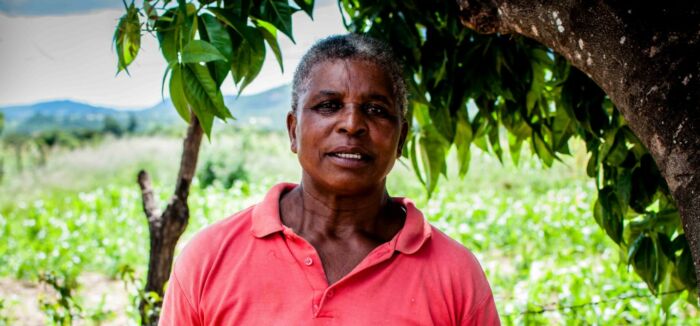We Effect has a long history of working in Zimbabwe which dates back to 1984. Over the years We Effect has supported the strengthening of numerous locally registered member based civil society organisations working in the agriculture, housing and cooperative finance sectors with the aim to improve the livelihood of Zimbabweans living in poverty; particularly those that are from rural areas and especially women.
The Country Office opened up in 1996. Between 1997 and 2009 the Zimbabwe office also served as the Regional Office for Southern Africa, before it moved to Zambia where it is located today. We Effect changed its name to We Effect from Swedish Cooperative Center (SCC) in 2013.
We Effect’s main work includes the mobilisation of resources and organisational capacity building of our partners, to enable them to effectively meet the member driven services of their membership in a sustainable manner – and to ensure members claim their rights.
In Zimbabwe We Effect work with rural development, with a focus on small-scale entrepreneurship and business development. Through our partner organisations, small holder farmers receive trainings in how to develop their farming practices and improve their negotiation skills with buyers to increase their produce. We Effect also support women’s rights organisations and housing cooperatives.
In Southern Africa, study circles are an important tool for improving the living conditions for women and men living in poverty in rural areas. The study circle is a small learning group of 5-15 people that have voluntarily come together to learn about a particular subject of mutual interest. This self-governing group holds regular meetings which are collectively scheduled to carry out the study plan. Study circles aim at developing capacity and competence through interactive exchange of scientific and indigenous knowledge within the study group and during field and look & learn visits. This ultimately leads to increased resilience and improved productivity/production, group savings and loans and local business development. In Zimbabwe We Effect is working to digitalise the study circles concept to ensure that the study circles are also available in audio, visual and hard copy through various media such as tablets, cassettes, discs or usb. The study circles currently have over 400,000 members regionally and the regional study circle resource center is based in Zambia.
Smallholder farmers have challenges accessing affordable loan products and other forms of credit from formal financial institutions, for financing and developing their businesses. Therefore We Effect – through our partner organisations – also support the right holders to involve in financial services where internal saving and loan (ISAL) groups, Savings And Credit Co-operatives (SACCO), financial literacy and linkages to formal financial services are key concepts and approaches.
In Zimbabwe, the use of Information Communications Technologies (ICTs) in the dissemination of agricultural information to farmers is growing – and specifically the electronic extension (E-extension). Study circle materials and other information is uploaded into the platform and accessible through the use of android phones by the individual farmers and/or the study circle groups. The system is linked to various extension service providers and enables an interactive communication between the farmers and the extension service providers through a questions and answers platform.
Another emerging concept is electronic marketing (E-marketing). An electronic marketing platform links smallholder farmers with sellers of farm inputs and buyers of farm produce. It enables farmers to get information about marketing opportunities for their produce and enter into procurement and sales agreements. The system also enables farmers to get knowledge about supply and/or producer prices offered, which puts them in a stronger position to negotiate for better deals with local traders.
Developing and strengthening groups in creating farm aggregations through Commodity Associations is another key We Effect approach. The formation of viable market demand driven commodity groups is used to increase the performance of small scale farmers in input and output markets. Farmers self- select into a commodity group that is viable to them for ownership of the group.
In Zimbabwe We Effect is also working with the lead farmer concept. The lead farmer concept is a farmer to farmer learning approach which is complementary to the study circle approach. This concept uses a bottom up and farmer centred approach which empowers farmers to express meaningfully their demand for services and legitimise ownership of the learning process. A lead farmer is an individual farmer identified by the partner organisation in a local area. The farmer is identified based on a set of criteria and is incentivised through provision of specialised training and inputs for the demonstration plot.

